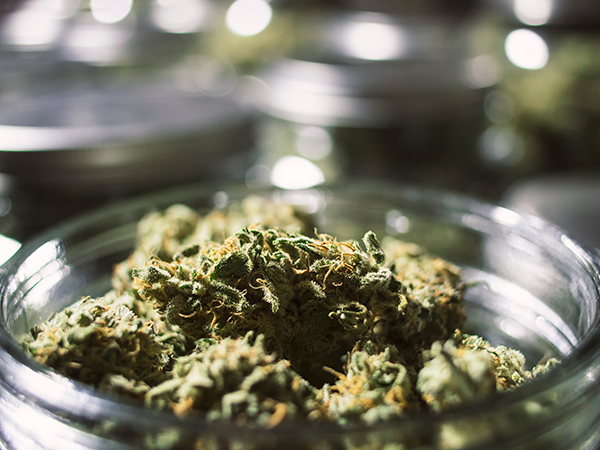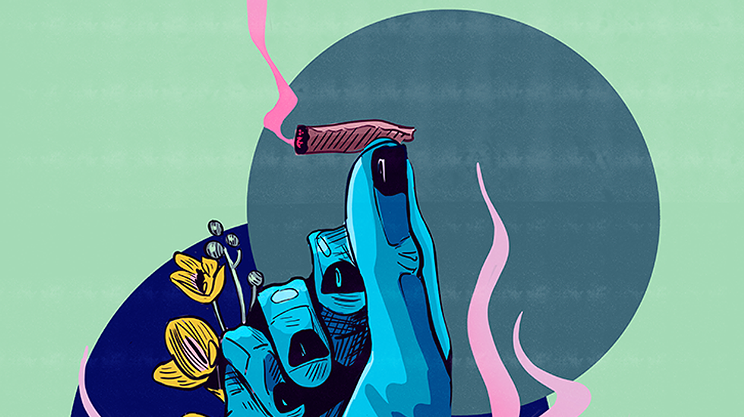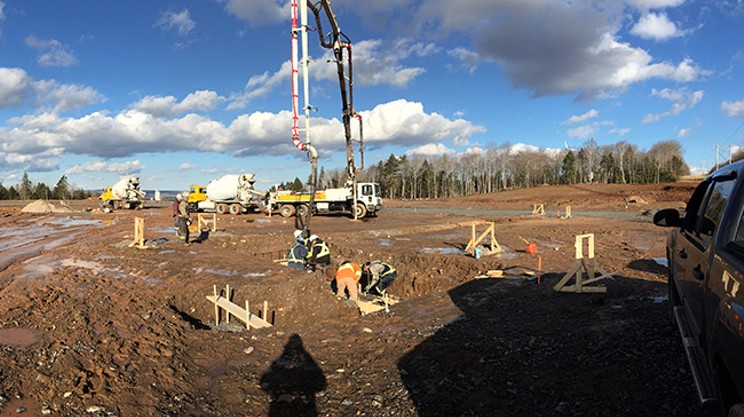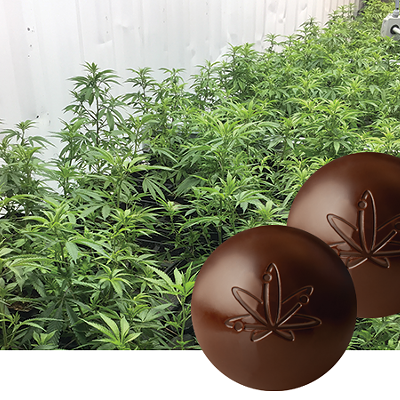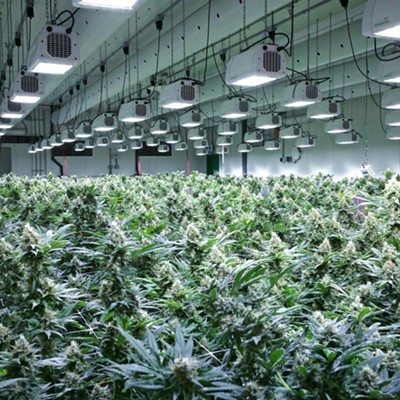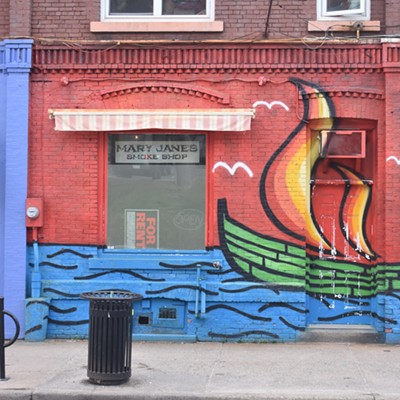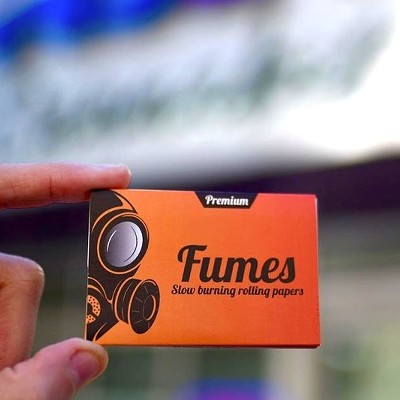On October 17 last year, Canada changed when recreational cannabis became legal. In most provinces, people lined the street outside their neighbourhood cannabis store to get their first taste of constitutional weed.
But legalization is about much more than the ability to buy cannabis from a store. Our national identity has shifted: We're now known around the world for being the country that legalized weed (the second to do so, after Uruguay in 2013).
At bars, at coffee shops, in homes, in buses, on park benches and even at work...cannabis is an increasingly acceptable topic of conversation. Although perhaps taboo, being high in public is no longer a risk. While still stigmatized, it's perfectly OK to smoke a joint with your grandfather.
But with legalization comes, well, laws. A lot of them. And bureaucracy—a lot of that too. While cannabis is becoming a more regular discussion topic, it's also a topic of immense confusion.
If you were to walk down Quinpool Road just a month before legalization last year, you would have had easy access to cannabis and products at several dispensaries. These private pot shops operated in a legal grey area between prime minister Justin Trudeau introducing the Cannabis Act in parliament, in April 2017, and the official start of legalization in October 2018. It was a completely unregulated—unbureaucratic— industry, where some stores required a medical cannabis prescription from your doctor to sell you weed, but at others all you needed to do was sign a waiver asserting your right to medical cannabis. After doing so, you could peruse the store at leisure, freely scent-testing the products from glass jars.
With more than a dozen dispensaries popping up in Halifax alone, it felt a lot like this whole process was already happening before Trudeau gave us formal permission.
Today, there are four NSLC locations selling pot in metro Halifax: The stand-alone downtown store at 5540 Clyde Street, and cannabis counters inside liquor stores on Joseph Howe Drive near Fairview, Sackville Drive in Lower Sackville and Portland Street in Dartmouth. Recreational cannabis isn't permitted to be sold outside of these shops, yet there are still several private dispensaries in the city.
Although these shops are operating under the label "medical dispensary"—and they are filling a market that the NSLC can't always satisfy because of continuing legal weed supply shortages—they aren't federally licensed. HRM communications advisor Brendan Elliott says shutting them down is an ongoing battle.
"What we saw happening even just months before legalization was that people would slap the word 'medical' onto their storefront and try to add some legitimacy to the operation, and that just wasn't the case," he says.
Currently, the city has three open investigations into illegal dispensaries. In court, HRM has a total of 12 convictions, one voluntary closure and two court injunctions. There are three more cases in the works as it stands that might be heading to trial too. These investigations take place from a city planning standpoint, rather than criminal. (Criminal investigations require a different set of evidence to move forward with raids, although raids are still happening as well.)
The legal battle at the city level has been drawn out on several occasions due to businesses ignoring a court order to close their doors, says Elliott.
"We've been anecdotally told the reason that our orders are being ignored is because the money that [the businesses] make on a daily basis in cash is not enough of a disincentive to follow our orders," he says.
In two cases, the city has taken businesses to the next level of court: Supreme Court orders were issued to Coastal Cannapy in the north end and Canna Clinic downtown before they eventually shut down.
The length of this process may point to how some storefronts are managing to stay open in Halifax, and around the country.
This is no doubt confusing for the average cannabis consumer. With some storefronts still afloat and countless unlicensed businesses selling online, these sources tend to look legitimate.
But there's something more to this, something more than just a simple consumer mistake: Dispensaries and other illegal dealers are often consistent with their stock. By contrast, the legit retail system struggles to provide consistent stock of recreational weed across the country.
The fear about nationwide cannabis shortages that welcomed October 17 has come true in the last six months. Nova Scotia's finance minister wrote Health Canada about the province's cannabis shortage on several occasions; in December, the NSLC was receiving less than half of the cannabis it needs to keep up with the demand of its customers, the nation's most active cannabis consumers.
There is much debate over when the shortage will end, with some reports saying it might take several years, while Health Canada reports that the inventory is available, but not making it to the shelves.
Supply demands
On a sunny Tuesday afternoon in early March, Halifax's Clyde Street NSLC cannabis store is relatively empty. A few customers peruse the large former liquor store while six NSLC staff stand behind various counters. The walls are pretty bare, other than some glass shelving with a selection of accessories like vapes and pipes. In the mid-section of the store, you can read about the kinds of weed that are available, and can also sniff bud from plastic containers with holes at the top.
iPads and TV monitors are scattered throughout the store, there to answer commonly asked questions.
Along the counter stocked with cannabis are the words "relax, unwind, centre, enhance," categories meant to help the consumer better understand the store's selection of strains. Staff stand at attention, ready to assist.
This day, there's no CBD oil available. There was a shipment last week, but it sold out within hours. The NSLC has had eight shipments of the trendy oil in since legalization, all of which have sold out on the same day they arrived, said an NSLC employee. The consumer's best bet? Check back routinely. Or, get a prescription from a doctor, and go the medical route.
Good news: In this store pre-rolled joints are available from three different companies today (this has been a rarity). However, if you're looking to buy bud in small quantities, you're out of luck—all one-gram portions are completely sold out.
Visiting the cannabis store kind of feels like gambling. But apparently things have gotten slightly better.
"Supply continues to be an ongoing issue in Nova Scotia just as it is across Canada, though we have seen a slight improvement here," says Beverley Ware, communications advisor for NSLC. "We're working hard to secure the inventory our customers want and it's expected to take some time before that stabilizes.
"Because we developed our process for listings and replenishment to be flexible, we've been able to bring on new licensed producers as they receive their licenses to sell from Health Canada. Because of that, we have seen a slight improvement in supply in the last few weeks."
The precariousness of supply speaks to the infancy of the entire recreational cannabis industry. It's pretty obvious that the industry itself is still figuring everything out: From supply and demand, to regulations and even to enforcement.
So where does that leave everyone else? Has legalization actually pushed people who want to be in the industry away?
In February, The Coast published "How cannabis legalization caused an illegal weed boom," written by Meagan Campbell. The story chronicles the business of two cannabis dealers, known as The Girls, who are flourishing in the black market.
While a major reason behind recreational legalization was to "deter illicit activities," these dealers say business is booming. The Girls say they "don't want to be criminals," but they feel the province has "created no space for them in the legal market."
The article also quoted Michael Armstrong, an associate professor of business at Brock University. He said the lack of consistent government pot supply has created "a window of opportunity for the black market." He expects this to thrive for a year or so, until the sale of edibles is permitted and more conveniently located stores are established.
Knowledge empowers
Brett Evans is a cannabis activist in Halifax, and also the inventor of the DoobTool, a cannabis multi-tool. He has been trying to get his product into the NSLC since October, but hasn't been successful. He says his request has been answered with "someday" on several occasions, but never with a concrete timeline.
"It's hard to bank on the NSLC's promises," he says. Evans would love to get his invention on the store's shelves but has no idea of their "game plan."
"I think it's a beautiful thing to be able to trail-blaze in a brand-new industry—a brand-new industry in the world, not even just in this country," says Evans. "We just hope that the government will give us a piece of the pie."
As it stands, the cannabis industry in Canada feels a little wild. It's in essence an experiment, one that's making things up as it chugs along. For industry professionals and consumers alike, clarity is being sought after.
But help is coming. The Coast is launching the Cannabis Sessions as an learning event (see page 14). And one local cannabis company is making consumer education a mandate.
Breathing Green Solutions was Nova Scotia's first licensed seller in the post-prohibition market. The company's Skosha brand has opened an education centre directly across from the NSLC on Clyde Street. While they're still getting things set up and they haven't officially launched the space, the doors are open for people to start stumbling in.
Sarah Chisholm is the education coordinator at Skosha. She says there are big plans for the space. "We're going to have lots of information on the walls, we have staff that are really qualified to speak about cannabis and excited to speak about cannabis," she says. "And we hope to host some events and workshops, to bring the community inside."
In addition to the educational aspect, this centre will also function as a store selling a curated selection of cannabis accessories, many of them locally made. Chisholm says the space was developed in part to address the confusion amongst cannabis consumers.
"I think people are craving information about cannabis," she says. "And just someone to talk to about it...to speak to about their own confusion, or to just be really honest and say they know nothing about it, but they want to be educated. I think there's definitely an appetite for that."
Ashley Corbett is The Coast's cannabis affairs reporter.

